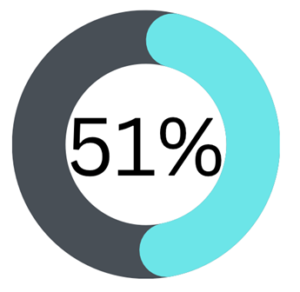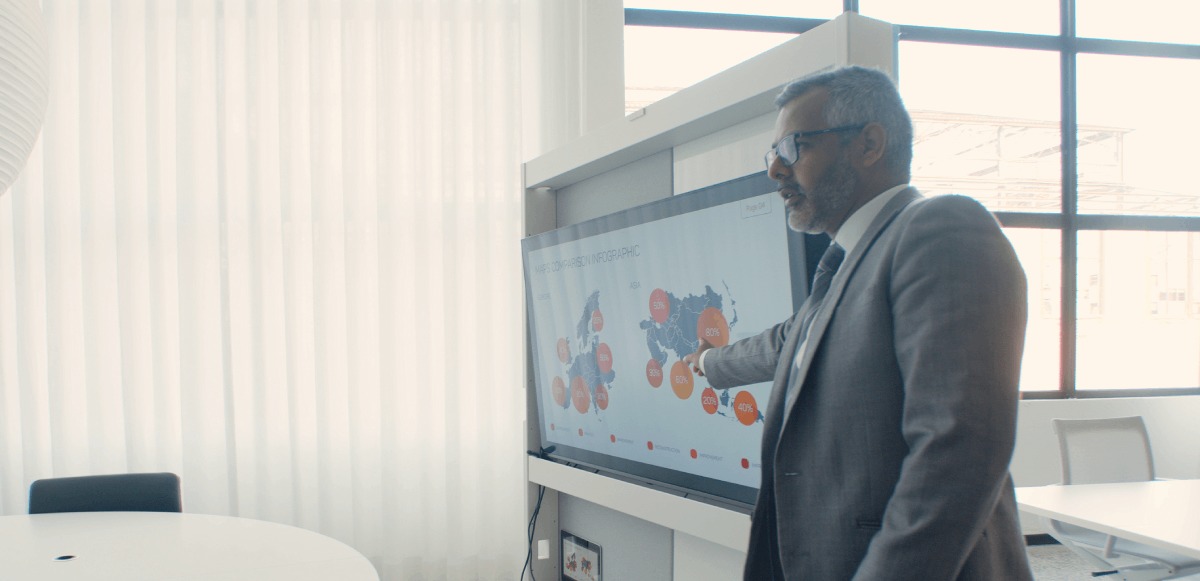“Data is the new oil.”
“It’s the lifeblood of our organization.”
“Without data, you’re just a person with an opinion.”
We’ve heard all of this before, haven’t we?
Its 2023 –data is important, of course data matters and it certainly has its challenges.
But who is responsible for your data? Who is accountable for its quality, management, and security? Who has a vision for its future use? For a growing number of companies, that’s the role of the Chief Data Officer (CDO) – a senior executive responsible for the utilization and governance of data across the organization.
But despite being regarded among the trendiest of C-suite positions, it also remains one of the most misunderstood – with the average tenure being just 30 months. In this article, GDS Group Presenter and Content Creator Alex Wood looks at some of the reasons for this, with further insights provided by Dr Patrick Terry, the CDO at BOK Financial.
In brief:
- New research shows the average tenure of a Chief Data Officer (CDO) is just 30 months, a concerning trend in a time where data is increasingly critical to business success.
- This short tenure can be attributed to a variety of factors, including unclear expectations, a lack of support and an inability to communicate effectively with other C-suite executives.
- To combat this, CDOs must prioritize building executive presence, developing storytelling skills, and tailoring data solutions to different types of stakeholders to become more effective in their role.
What is the Chief Data Officer’s role?
One of the main challenges CDOs face is the lack of clarity around their role and responsibilities – and this, in turn, can create tension.
“There are wildly varying expectations,” Dr Terry told the audience gathered at GDS Group’s recent Data & Analytics US Summit in April. “C-suite leaders get frustrated we’re not delivering fast enough because they don’t understand some of the nuances we have to address over a long period.
“They get frustrated with us and we, as data leaders, become frustrated with our leadership because we feel we’re not supported, we don’t have enough funds or that we’re having to do more storytelling and buying and selling.”
Most business leaders agree the CDO is critical – but few agree on precisely what the role entails. For example, how much technological expertise does a CDO need? How much data governance responsibility should they have? And who do they report to?
Despite this ambiguity, the number of CDOs appointed in recent years has skyrocketed (as has the volume of data generated by IoT, social media, e-commerce and mobile usage). In 2012, just 12% of Fortune 1,000 companies had a CDO – but by 2018, 67.9% of surveyed firms had one.
“Not all users are created equal – executives have different needs.”
Dr Patrick Terry, CDO at BOK Financial
WATCH: Dr Patrick Terry addresses the audience at GDS Group’s Data & Analytics US Summit in April
Forget data-driven, be results-driven
Another issue CDOs often face is the pressure to deliver results quickly. First and second-generation CDOs (generally defined as those appointed in the 2000s and 2010s) were primarily focused on risk management and monitoring data policies. But there has been a marked shift in the past couple of years with third generation CDOs (those appointed in the 2020s) now coming to the fore, placing greater importance on identifying and enabling business use cases in which data can drive tangible business results.
Part of the problem – at least historically – has been flawed data management approaches which do not provide visible value to a company’s leadership. This is particularly true for nontechnical executives who don’t understand the CDO’s work and struggle to recognize when it’s being done well. In addition to this, CDOs have typically been asked to focus on preventing data problems – a defensive approach, if you will – rather than innovating or experimenting with data.
“We need to educate without insulting,” Dr Terry explained. “We may understand what we’re doing really well but if we can’t describe it on their terms, or in their perspective, then we’re not going to serve ourselves very well.
“CDOs need to be able to describe what they want, describe the value of what they’re offering and describe what the models are showing.
“You’ve got to be able to tell a good story about what you’re doing. All this translates to an inability to often relate with our peers, knowing the impact of our data on our stakeholders and how it’s going to affect them.
“We often don’t know the problem that we’re trying to solve, and we don’t always know the right level of data for the type of consumer.”
According to a survey by NewVantage Partners

of companies have appointed chief data or analytics officers.
Develop an executive presence
Despite these challenges, there are certain steps a CDO can take to increase their effectiveness in the role. According to Dr Terry, one of the most important – but often overlooked – skills is being able to communicate.
“We need to be better storytellers,” he said. “And we also need to empower others to know the data. If one particular leader doesn’t necessarily have expertise, they need to trust others in that journey.”
Dr Terry suggested successful modern-day CDOs should also be open to “constant learning” and “active listening”.
“This space moves very rapidly,” he said. “Covid certainly taught us that! Every day we were hearing about models and stats and things that many people had very little exposure to previously.
“Data can be very new to executive leaders as well, so we all need to be constant learners and active listeners.”
Data versus intuition
Which comes first – good data or data literacy?
A good data culture is something every organization wants, one where people are naturally data curious, trust the insights and understand the difference between reliable and unreliable data. In turn, teams that are both data-driven and data-literate crave good quality data – they want to measure the success of their product releases, build, and maintain the tracking plan, implement proper analytics events, and review the insights that help them make their next decision.
But one of the most significant barriers to data literacy is a lack of trust.
“Executive leaders mostly trust themselves and their instincts,” Dr Terry said. “It doesn’t matter what the data tells them – they’re just going to do what they’re going to do anyway. They have a particular bias based on their experiences, and that often creates a gap in how effective leaders are at leveraging data to make better decisions.”
WATCH: Dr Patrick Terry explains why CDO’s are “inadvertently set up to fail”
1 in 5

CDOs stayed in their previous role for between one and two years (source: Gartner)

of CDOs report directly to a top-level executive manager, with 29% directly accountable to the CEO (source: Gartner)
The role of the CDO has become increasingly critical in today’s data-driven business environment. To ensure a successful tenure and maximize the value they bring to an organization, CDOs need to focus on building relationships, creating a data-driven culture, aligning data strategy with business goals and prioritizing data quality and security. By doing this, CDOs can help their organizations unlock the full potential of their data assets and achieve a competitive advantage.
As data continues to grow in volume, variety, and complexity, the role of the CDO will only become more important. It’s clear that the CDOs’ responsibilities go way beyond simply managing data; they’re expected to be strategic leaders who can create value and drive innovation through data. The CDO can be a key enabler of business success – but it’s up to organizations to give them the support and resources they need to excel.
GDS Summits are tailored 3-day virtual event conferences that bring together business leaders and solution providers to accelerate sales cycles, industry conversations and outcomes.
For more, click here to hear from attendees on how GDS has helped them to achieve their business outcomes.
Continue the debate at GDS’ Data & Analytics Summits where we bring together senior data executives who are actively seeking to share, learn, engage, and find the best solutions.











